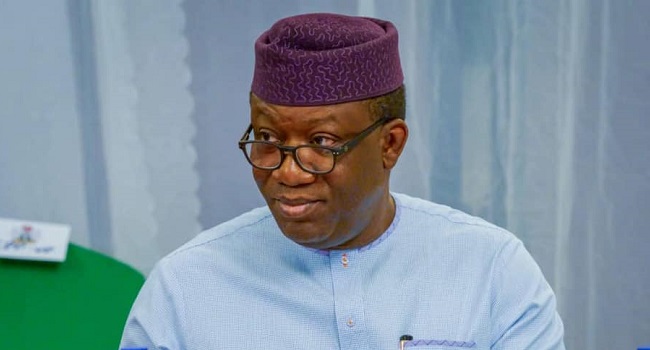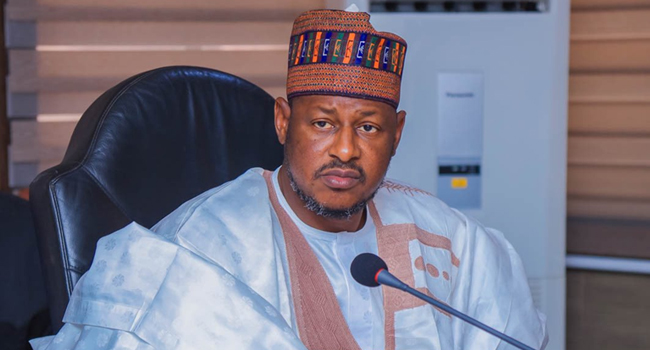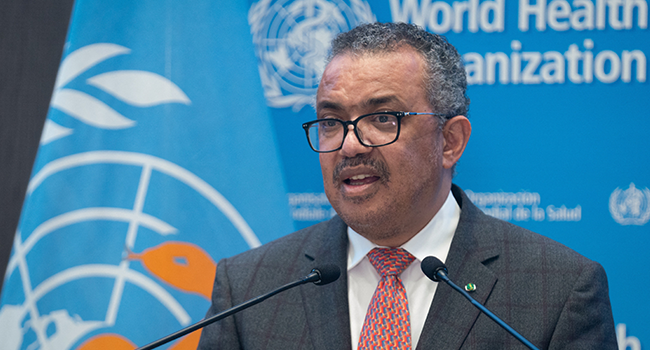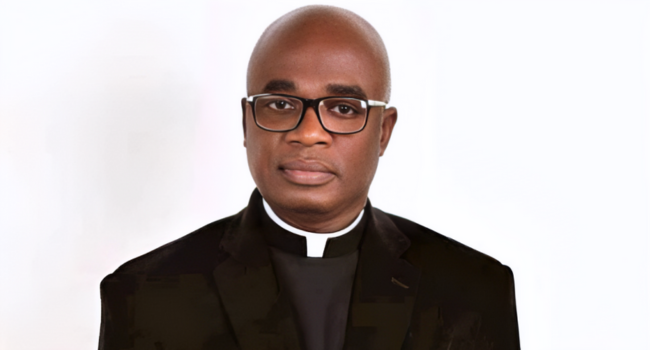
The World Bank has approved a grant of $20million for Ekiti State to fund projects aimed at mitigating the effects of COVID-19 across various communities.
Governor Kayode Fayemi disclosed this on Tuesday at a Community Development Forum in Ado Ekiti.
“I am happy to inform our people that the World Bank has approved a new project called the Nigeria CARES as a post-COVID-19 intervention grant for Ekiti State.
“The grant is in excess of $20m as a stimulus fund to cushion the effect of the COVID-19 pandemic on our various communities,” he said.
Fayemi said the fund will be released under the Nigeria CARES initiative, which will be used to fund rural projects and alleviate poverty at the grassroots.
Speaking through his Special Adviser on Development Partnership, Mrs Margaret Fagboyo, on Monday, the governor asked residents of the state to properly maintain all World Bank Projects across communities.
SEE STATEMENT HERE:
COMMUNITY AND SOCIAL DEVELOPMENT PROJECT STAKEHOLDERS WORKSHOP ON COMMUNITIES PROJECTS MAINTENANCE AND SUSTAINABILITY HELD AT ADETILOYE HALL ON MONDAY 28TH SEPTEMBER, 2020, ADO EKITI
PROTOCOL
It gives me great pleasure to join the Ekiti State Community and Social Development Agency (EKCSDA) and communities, Local Governments, MDA’s and traditional rulers at this Stakeholder’s Workshop on Maintenance and Sustainability of Community and Social Development Projects (CSDP). A global problem like poverty requires a global solution that developed and developing countries respectively have both moral and strategic responsibilities to address. This is the reason why multilateral institutions like the World Bank are taking necessary steps to come up with mechanisms to address the menace of poverty, particularly in developing countries.
One such development mechanism is the Community and Social Development Projects, CSDP, which is a poverty reduction initiative of the World Bank established in 2009 to accelerate development at the community level in 30 states of the federation. Considering that the community represents the baseline of our society and evidence of poverty is more prevalent at that base level, it, therefore, presupposes that any effective intervention towards tackling the menace must have the community as its focus. This fact underscores the strategic importance of the CSDP.
The development objective of CSDP for Nigeria is to sustainably increase access of poor people to social and natural resources as well as infrastructure services at the community level. In other words, the development objectives of CSDP is supporting the: (i) Empowerment of communities to develop, implement and monitor micro-social infrastructure projects including natural resource management interventions, and (ii) Strengthening of the skills and capacity of LGAs and sectoral public agencies to support communities and build a sustainable partnership that can deliver on the objectives.
The project has since been very active in each of the 30 participating states including the FCT, with a strong emphasis on community participation, commitment, and focuses on results.
Ekiti State Community and Social Development Agency, EKCSDA, as the Focal Agency for the project in Ekiti have strictly complied with the guidelines of CSDP by insisting on the Community-Driven Development approach of the project. In other words, the project allows the benefiting communities to choose, implement and sustain their projects, while also contributing 10 percent as counterpart funds to encourage ownership of the project so as to ensure the maintenance and make sustainability of the project feasible.
In addition, the Community-Driven Development (CDD) approach of the project provides control of the development process, resources, and decision-making authority directly to the community. The underlying assumption of CDD projects is that communities are the best judges of how their lives and livelihoods can be improved and, if provided with adequate resources and information, they can organize themselves to provide pin-point solutions to their problems and needs.
While the project has continued to record tremendous successes, the outcomes and impact stories from the benefiting communities and other stakeholders have been impressive and encouraging to the government. What is therefore needed at this point, particularly as the project closes out at the end of September 2020, is to sustain the feat that has already been recorded on the project over the last decade.
Distinguished ladies and gentlemen, it is important to say that CSDP is one of the veritable tools to reach the poorest of the poor which is the principal objective of our development agenda in the state. That’s why the agency will continue to enjoy the support of the government by creating an enabling environment for it to do more for our people at the community level. I am proud to add that my administration has contributed the largest chunk (N375 million) of the Four Hundred and Seventy-Five million Naira (N475,000,000) released to the agency by the state government in counterpart funding over the last ten years, and we are determined to do more.
As of date, the Agency has funded about 255 Community Development Plans, CDPs, and 19 Group Development Plans, GDPs, translating to over 630 micro-projects across the 16 Local Government Areas of the state. It is also interesting to state that Ekiti State ranked overall third performing State on the projects nationally.
This commitment demonstrates our participatory approach to governance and it allows funds to be directly disbursed to the people for self-help projects of their choice in various communities across the state. What the government does is to offer guidance and strict monitoring of projects in relation to the funds disbursed. This has no doubt led to greater outcomes based on various studies carried out by independent consultants on the projects, and which has been attested to by the community and our development partner, the World Bank.
For example, in the educational sector, there was a 34.0% and 78% increase in schools’ enrollment at the primary school level both for male and female students respectively. At the secondary school level, male enrollment also increased by 135.8% while females increased by 157.4%. A similar outstanding feat was also recorded in the water and health sectors respectively. In other words, increased access to healthcare services and the provision of potable water have tremendously impacted the lives of our people positively in rural communities.
I would therefore like to thank the World Bank for all its development activities in Ekiti State particularly as it relates to CSDP and the Urban water project which is almost at the final stage of completion. We are particularly happy that CSDP has consistently scored greater marks in our development score sheet. I am also happy to learn that benefiting communities have contributed over Two Hundred Million Naira (N200,000.000) in counterpart funds in order to ensure maintenance and community ownership of the various micro-projects.
Even as the project closes out, I am happy to inform this distinguished audience that the World Bank has approved a new project called the Nigeria CARES as a post-COVID-19 intervention grant for Ekiti State. The grant is in excess of $20 million as a stimulus fund to cushion the effect of the Covid-19 pandemic in our various communities.
Let me, therefore, impress it upon the various communities represented here today to put all the CSDP micro-projects in their respective communities to very good use. As a control measure, I will be setting up an independent committee to monitor these projects in compliance with our maintenance and sustainability strategy. Communities that are seen to comply with our sustainability culture will be accorded priority as primary beneficiaries of the upcoming project. I will like to encourage our Kabiyesi to please take note of this.
On this note, I will like to thank you all for your time and hereby declare the workshop opened.
Dr. Kayode Fayemi
Governor, Ekiti State, Nigeria




